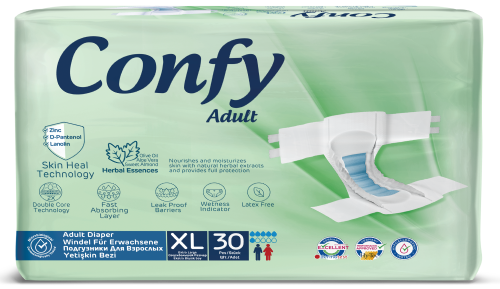What Causes Incontinence and What are the Risk Factors?

Urinary incontinence is when someone has no control over their urinary functions. Urinary incontinence, more common among the elderly, may be a precursor to some underlying diseases, so care should be taken. Incontinence can be caused by prostate, menopause, diabetes and difficult childbirth experiences, as well as due to physical factors such as advanced age and obesity. Although it is more common among the elderly, it is more common in women than in men.
What Causes Urinary Incontinence?
Urinary incontinence is a common condition in elderly people that are in need of care. Some individuals may experience urinary incontinence even if they are not old. Urinary incontinence may develop due to some conditions. For example, it can develop due to coughing, sneezing, laughing, jumping, etc. Urinary incontinence may occur because these conditions create pressure in the bladder. Also, factors like stress that negatively affect emotions in daily life can cause urine to leak. In such stressful situations, individuals may experience involuntary leakages of urine. Such sudden mood changes may cause incontinence. Urinary incontinence is not a result of being old. However, some factors such as old age increase the risk of urinary incontinence. In addition to old age, excess weight, diabetes and constipation can also be the primary causes for incontinence. Prostate problems can also cause urinary incontinence in men. In women, multiple pregnancies, difficult childbirth experiences, vaginal infections, or menopause may be a contributing factor. Kidney stones and genetics may be a factor for both sexes predisposing one to have urinary incontinence.
What are the Risk Factors of Urinary Incontinence?
Urinary incontinence may be caused by reasons beyond the control of individuals such as advanced age, gender, and genetics. In addition, smoking, alcohol consumption, caffeine consumption, constipation and some medications can cause temporary urinary incontinence. Apart from these, there are some risk factors that cause persistent urinary incontinence. For example, bladder volume decreases with age. Urinary incontinence can occur when this is coupled with obesity and some hormonal changes. Likewise, pelvic muscles can get damaged, and even torn, in individuals who have had a difficult vaginal delivery. These damaged muscles can cause persistent urinary incontinence. In addition, patients with kidney stones may suffer from leakages, as the urinary bladder may not be fully emptied.
How Is Incontinence Treated?
Urinary incontinence can affect children and adults alike. Appropriate treatment methods should be used depending upon the age, gender and physical condition of the individuals. For example, individuals who can take care of themselves can consider quitting smoking, giving up alcohol, or avoiding excessive consumption of caffeine and fluids. Not being obese, getting rid of excess weight and doing physical exercise can help prevent urinary incontinence. Apart from these, Kegel exercises are often used for individuals with urinary incontinence. Kegel exercises are painless and deliver positive results when done correctly. However, individuals with certain diseases such as Alzheimer’s may be too frail to do Kegel exercises. Individuals with Alzheimer’s-like diseases and those who are in need of care may feel shy or embarrassed about having urinary incontinence. It is extremely important to provide the right kind of care to elderly individuals suffering from this condition.
Patients can use diapers during day or night time. These diapers, specially produced for adults, make patients more comfortable, and carers’ jobs easier. Adult diapers must meet some special requirements. The diaper should be soft and wearers should feel comfortable in it. It should also be leak-tight and provide full protection. The skin of individuals wearing diapers should be checked regularly. Tight-fit clothes should be avoided as they may impair blood circulation. Likewise, tight socks should not be used, as they may generate negative consequences with diabetes. If the patients cannot move around in bed on their own, their position should be changed every few hours for improved blood circulation. With a trustworthy diaper and the right sort of care, individuals can lead a healthier life.














